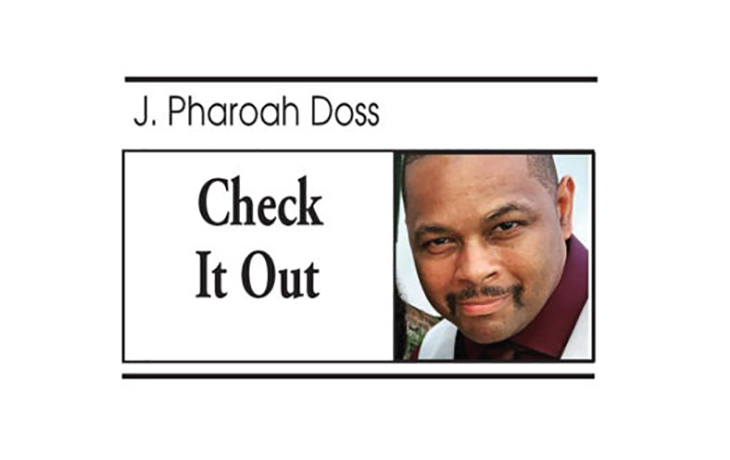CLAUDE MCKAY
Once again, the “Black National Anthem—Lift Every Voice and Sing” was performed before the Super Bowl, and, once again, conservatives expressed their displeasure as soon as the singer finished.
Megyn Kelly, a talk show host, posted that America already has a national anthem that includes everyone, implying that the Black national anthem promotes division. U.S. Rep. Matt Gaetz (R-FL) posted, “Wife: Today is the Super Bowl! Me: We’re not watching. Wife: Why? Me: They’re degrading the national anthem by playing something called the Black National Anthem.”
Clearly, these two people opted to start a skirmish in the right-left cultural conflict because they believe the NFL is catering to their “anti-American” political opponents.
Supporters of the NFL’s decision to include Lift Every Voice and Sing in the Super Bowl pre-game pageantry have cited historical facts to discredit these views.
Lawyer and poet James Weldon Johnson wrote Lift Every Voice and Sing in 1900, and his brother, a musician, arranged the music to commemorate Abraham Lincoln’s birthday. The song honors the first Republican president who defeated the Confederacy and preserved the union.
The claim that the song promotes division is absurd.

Rep. Gaetz made it apparent that he had no idea there was a Black national anthem. He assumed it was a recent “woke” invention to compete with the Star-Spangled Banner. However, this is not the case; the NAACP declared Lift Every Voice and Sing the Black national anthem in 1919. That was 12 years before the Star-Spangled Banner became the United States’ national anthem.
The historical facts are excellent rebuttals, but the facts lack depth. They don’t explain why the song became the Black national anthem in 1919.
Two major events preceded this critical year. First, during the Great Migration, Black individuals fled the South to avoid Jim Crow and seek better economic opportunities in the North and West, causing racial friction with White laborers. Second, when World War I ended, Black troops who had more freedom in Europe returned to America, determined to win the same political rights at home that they had fought for abroad. This Black feeling of self-determination alarmed Whites, who launched a violent campaign to keep Blacks at the bottom of the social hierarchy.
White mobs attack Blacks in over three dozen cities across the United States. Lynch mobs attacked Black men in military uniforms and targeted Black job seekers, killing hundreds and injuring thousands. James Weldon Johnson, then a field secretary of the NAACP organizing peaceful demonstrations against the violence, dubbed this terrible episode in American history the “Red Summer” of 1919.
The Jamaican poet Claude McKay worked on a train that year, traveling to various locations, and saw the carnage. He wrote a sonnet entitled If We Must Die. Following its publication, the poem swiftly circulated and became a nationwide rallying cry against White mob violence. To better comprehend the influence of McKay’s composition, Gwendolyn Brooks, the first African American to receive the Pulitzer Prize in 1950, stated that If We Must Die was the most famous poem of all time.
Here’s how McKay finished his masterpiece.
Like men we’ll face the murderous, cowardly pack,
Pressed against the wall, dying, but fighting back!
McKay elevated “going down swinging” to a moral duty.
As a civil rights activist, James Weldon Johnson recognized the fighting spirit depicted in McKay’s poem, but he also understood the importance of striving for victory rather than martyrdom. As an artist, Johnson recognized If We Must Die’s rapid popularity and emotional appeal, but if faith without works is dead, so is resistance without hope. If We Must Die required a complementary message. As a result, the NAACP turned Johnson’s song Lift Every Voice and Sing into the Black National Anthem.
In 2019, USA Today published this headline: ‘If We Must Die’: 100 years after Red Summer, Claude McKay’s poem resonates anew. According to the article, “Americans searching for a rallying cry for the cause of Black men and women killed in police-involved incidents have found inspiration in recent years in If We Must Die.” The following year, a White police officer in Minnesota killed George Floyd, an unarmed Black man, sparking riots across the country.
If McKay’s poem was an inspiration for protests against police killings, it’s plausible that the NFL chose to complement the spirit of resistance with James Weldon Johnson’s spirit of hope by including Lift Every Voice and Sing at the Super Bowl.
Conservatives should be happy.
The NFL could have had Black Lives Matter leaders recite “If We Must Die” before the game instead.